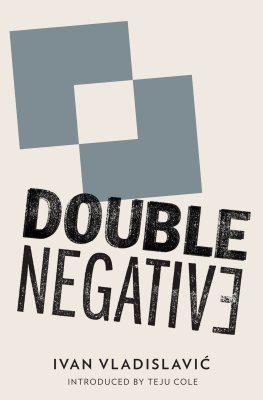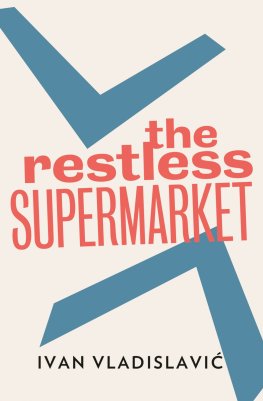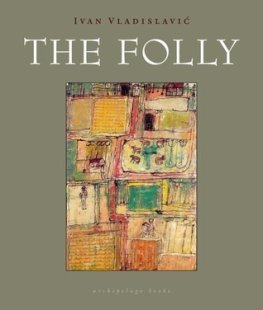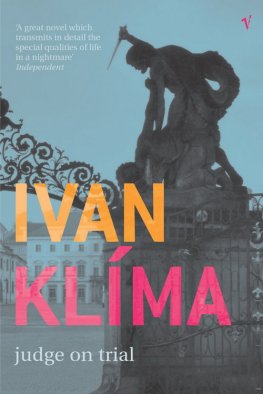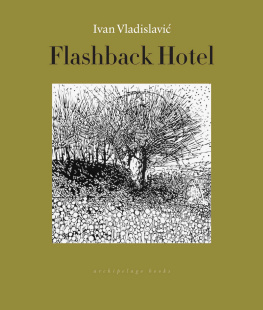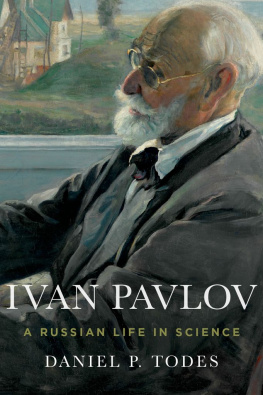Ivan Vladislavic - Double Negative
Here you can read online Ivan Vladislavic - Double Negative full text of the book (entire story) in english for free. Download pdf and epub, get meaning, cover and reviews about this ebook. year: 2013, publisher: And Other Stories, genre: Prose. Description of the work, (preface) as well as reviews are available. Best literature library LitArk.com created for fans of good reading and offers a wide selection of genres:
Romance novel
Science fiction
Adventure
Detective
Science
History
Home and family
Prose
Art
Politics
Computer
Non-fiction
Religion
Business
Children
Humor
Choose a favorite category and find really read worthwhile books. Enjoy immersion in the world of imagination, feel the emotions of the characters or learn something new for yourself, make an fascinating discovery.
- Book:Double Negative
- Author:
- Publisher:And Other Stories
- Genre:
- Year:2013
- Rating:5 / 5
- Favourites:Add to favourites
- Your mark:
- 100
- 1
- 2
- 3
- 4
- 5
Double Negative: summary, description and annotation
We offer to read an annotation, description, summary or preface (depends on what the author of the book "Double Negative" wrote himself). If you haven't found the necessary information about the book — write in the comments, we will try to find it.
Double Negative — read online for free the complete book (whole text) full work
Below is the text of the book, divided by pages. System saving the place of the last page read, allows you to conveniently read the book "Double Negative" online for free, without having to search again every time where you left off. Put a bookmark, and you can go to the page where you finished reading at any time.
Font size:
Interval:
Bookmark:
Ivan Vladislavic
Double Negative
Introduction
Saul Auerbach, the great fictional photographer at the heart of Ivan Vladislavis Double Negative, is more meticulous than most. The unhurried processes and careful results of his photography, taken on the streets and in the homes of the people of Johannesburg, provide the calm pulse of the novel. Photography is a fast art now, except for those who are too old-fashioned to shoot digital. But for most of the arts history until about fifteen years ago most photographers had no choice but to be slow. Film had to be loaded into a camera, the shot had to be taken with some awareness of the cost of materials, the negative had to be developed and the print had to be enlarged. A certain meticulousness was necessary for photographs; a certain irreducible calmness.
The narrator of Double Negative is Neville Lister, Nev to his friends and family, a smart young college dropout when we first meet him. He is anything but calm. Nevs life, detailed in a discontinuous narrative from his youth to his middle age, is the main material of the novel, but it unfurls to the steady rhythm of Auerbachs photographs: Nev anticipating the photographs, witnessing the places and persons involved in their making, remembering the images years later, and remembering them years later still. Like every worthwhile first-person narrator, Nev has a suggestive and imprecise identification with his author. Meanwhile, the fictional Saul Auerbach has a real-life cognate in David Goldblatt, the celebrated photographer of ordinary life in South Africa for the last fifty years. The temptation is to think that Nev and Auerbach are a pair of photographic positives printed from Vladislavi and his sometime collaborator Goldblatt. But this book is obsessed with imperfect doublings and it comes with its own caveat emptor: Stratagems banged around the truth like moths around an oil lamp. Things are not what they seem, and this is not a roman clef, though it has been expertly rigged to look like one.
With a language as scintillating and fine-grained as a silver gelatin print, Vladislavi delivers something rarer and subtler than a novelization of experience: he gives us, in this soft, sly novel, the seductive mysteries of things as they are. At heart, the novel is about an encounter between two great intellects in an evil time. It is an account of a sentimental education, though theres a quickness to the narrative that allows it to elude such categorical confinement. The sceptical, hot-blooded and quick-tongued younger man and the reticent, unsentimental and deceptively stolid veteran navigate their way through a brutal time in a brutal place. Neither of them is politically certain that rawness of response is outsourced in part to a visiting British journalist who goes out on a shoot with them but both are ethically engaged, and both realize how deeply perverse their present order (South Africa in the 1980s) is. It could not be improved upon, Nev says of that time; it had to be overthrown. This young Nev is self-certain but unsteady on his feet. We are reminded that he is, as his name tells us, a Lister. He pitches forward. I felt that I was swaying slightly, the way you do after a long journey when the bubble in an internal spirit level keeps rocking even though your body has come to rest. Vladislavis prose is vibrant: it is alert to vibrations, movement and feints, as though it were fitted with a secret accelerometer.
Double Negative is in three parts, dealing respectively with youth, a return from exile and maturity. The plot is light: through the drift of vaguely connected incident, all set down as though remembered, Vladislavi draws the reader into a notion that this is a memoir. But these are stories about an invented self interacting with other invented persons. It is not recollection but it is also not not recollection. It is a double negative. What sustains this enterprise, and sustains it magnificently, is Vladislavis narrative intelligence, nowhere more visible than in his way with language itself. Each section is perfectly judged; we enter incidents in medias res as though they were piano tudes and exit them before we have overstayed our welcome.
Above all, there is in Double Negative, as in all Vladislavis writing, an impressive facility with metaphor. Metaphors provide the observational scaffolding on which the story is set. They also occasion much of Vladislavis finest writing in this finely written book: someone has three wooden clothes pegs with their teeth in the fabric of her dress and they moved with her like a shoal of fish; a window display of spectacles looked on like a faceless crowd; barbershop clients reclined with their necks in slotted basins like aristocrats on the scaffold; somebody faded into the background like a song on the radio; and, impishly signalling his own technique, lenses on a pair of black-rimmed glasses are as thick as metaphors.
In the 1980s, the scholars George Lakoff and Mark Johnson argued that metaphor is pervasive in the English language and that our penchant for metaphorical speech creates the structures of social interaction. But in Vladislavis hands, the metaphor goes beyond this quotidian utility and, refreshed, reconstructed and revived, does a great deal more: it becomes a ferry for the uncanny, a deployment of images so exact that the ordinary becomes strange and the strange familiar. Metaphors are at home in South Africas strange and sad history, where many things are like many other things, but nothing is quite the same as anything else.
A metaphor is semantic. A double negative, on the other hand, is syntactical: two negations together in a sentence usually lead to an affirmation (in the wrong places, they could be merely an intensified negation). But a double negative, in the sense of two wrongs making a right, is a form of strategic longwindedness. To use two terms of negation to say that something is not unlike something else is not the same as saying it is like that thing. Double negatives register instances of self-cancelling misdirection. They are about doubt, the productive and counterproductive aspects of doubt, the pitching ground, the listing figure, and the little gap between intention and effect.
Beyond the grammatical sense of double negative, Vladislavi wants us to think of the photographic negative, upside down, its colours flipped, its habitation of the dark. Its double, the printed photograph, is the right side up, with a system of colours and shadows that resembles our world, and a form that invites viewing in the light. A photograph is an odd little memorial that owes a lot to chance and intuition, Auerbach says. But a photograph is also a little machine of ironies that contains a number of oppositions: light and dark, memory and forgetting, ethics and injustice, permanence and evanescence. There is an echo of double negative in the term given to a photographic negative that has been exposed twice before it is developed: a double exposure. In a double exposure, two instances of light, two photographic events, are registered in a single frame. Nevs return to the places he visited with Auerbach, and his superimposition of two sets of memories on a single location in Johannesburg, are a kind of double exposure, too.
Late in the novel, a grown-up Nev Lister talks to his wife Leora about a recent interview:
She was being ironic, obviously, she said.
Yes.
And so are you.
I guess.
The whole thing is ironic.
Including the ironies.
Maybe they cancel one another out then, Leora said, Like a double negative.
Teju Cole
New York, May 2013
Available Light
Just when I started to learn something, I dropped out of university, although this makes it sound more decisive than it was. I slipped sideways. After two years of English Literature and Classics, not to mention History, Sociology and Political Science, as we used to call it, my head grew heavy and I no longer wanted to be a student. Once my studies were over I would have to go to the army, which I did not have the stomach for either, so I registered for my majors at the beginning of the academic year and stopped going to lectures. When my father found out, he was furious. I was wasting my time and his money. The fact that I was living under his roof again, after a year or two of standing on my own feet, made it worse.
Font size:
Interval:
Bookmark:
Similar books «Double Negative»
Look at similar books to Double Negative. We have selected literature similar in name and meaning in the hope of providing readers with more options to find new, interesting, not yet read works.
Discussion, reviews of the book Double Negative and just readers' own opinions. Leave your comments, write what you think about the work, its meaning or the main characters. Specify what exactly you liked and what you didn't like, and why you think so.

